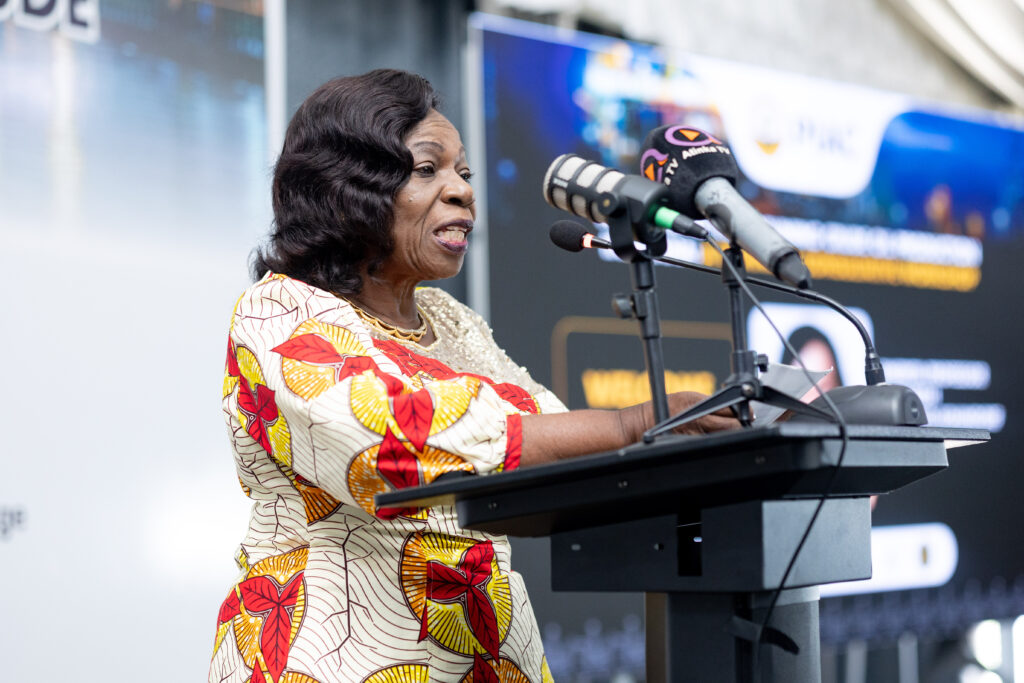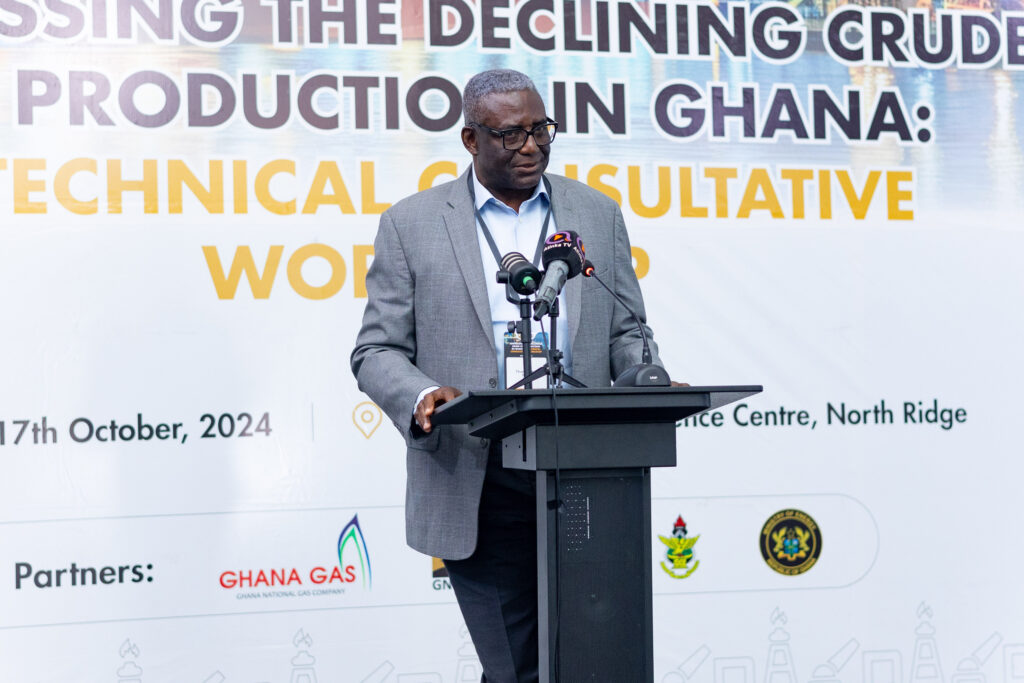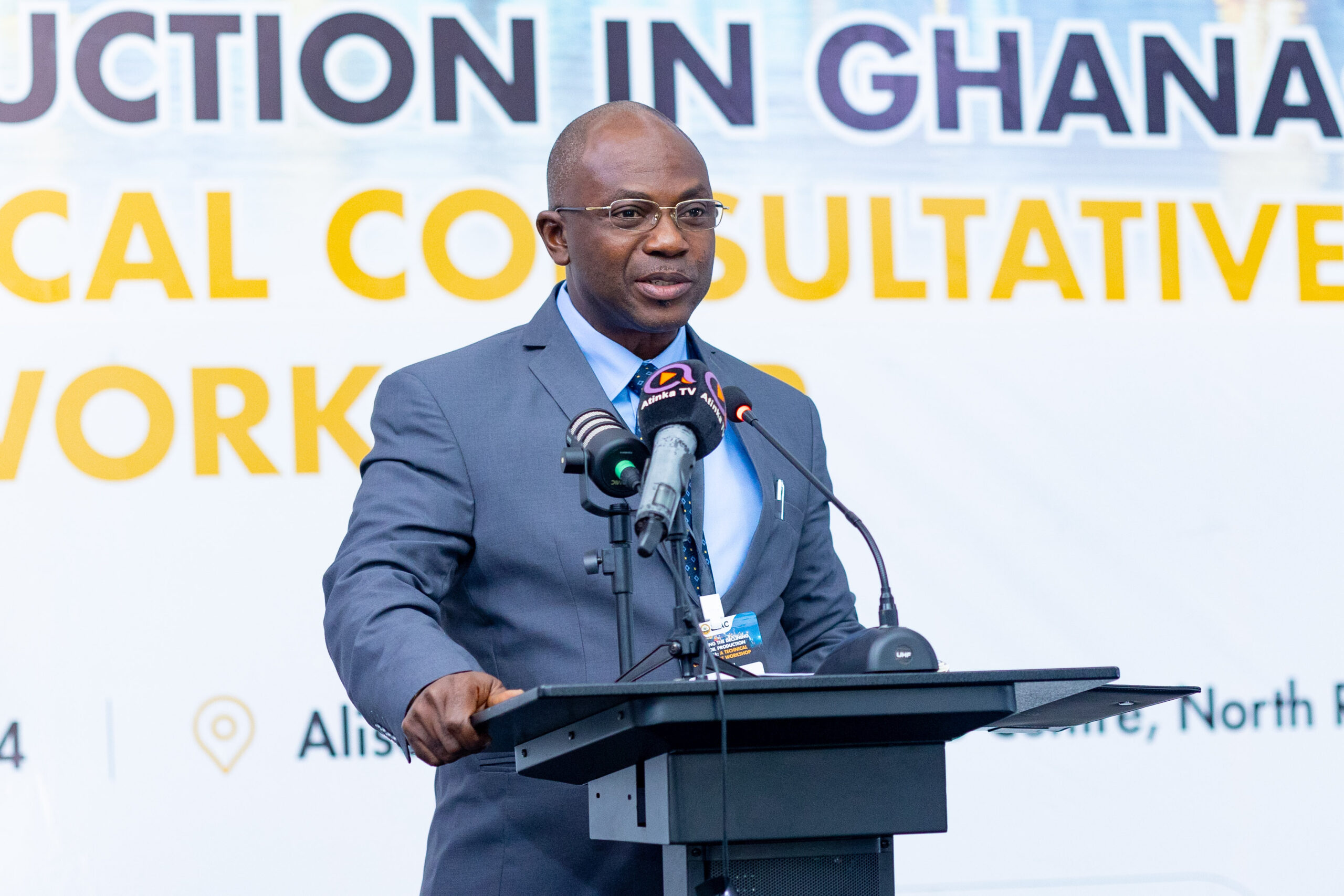The country must adopt a multi-pronged strategy to efficiently deal with the declining crude oil production.
A member of the Public Interest and Accountability Committee (PIAC), Constantine Kudzedzi, made the call and explained that the multiple strategy should be focused heavily on economic diversification, sustainable exploitation of petroleum resources, promotion of renewable energy, and the development of local industries.
Speaking on the first day of a two-day technical consultative workshop in Accra yesterday, Mr Kudzedzi, the keynote speaker of the day, stated that while the country was adopting multiple strategies, it must also ensure sustainability of its upstream oil and gas industry, embrace the global energy transition and build a resilient economy.
The conference
The workshop seeks to create a platform to discuss solutions to address the declining trend in crude oil production.
The Public Interest and Accountability Committee (PIAC) organised the workshop with partnership from stakeholders such as the Ministry of Energy, the Ghana National Gas Company, the Petroleum Commission and the Ghana National Petroleum Corporation (GNPC).
Chaired by a former Deputy Chief Executive Officer (CEO) of GNPC, Dr Thomas Kofi Manu, speakers at the opening included the Chairperson of PIAC, Emerita Professor, Elizabeth Ardayfio-Schandorf; and Deputy Minister of Energy, John Kobina Abbam Aboah Sanie.


Available data
Mr Kudzedzi stated that since 2020, crude oil production in the country had been declining by an average of 9.20 per cent.
In 2019, the country witnessed its peak in crude oil production since inception, recording a volume of 71.44 million barrels from the initial production of about 1.1 million barrels in 2010 through to about 62 million barrels in 2018.
This declined by 6.3 per cent to 66.93 million barrels in 2020, and further dropped to 55.05 million and 51.76 million barrels in 2021 and 2022 respectively. In 2023, production fell to 48.25 million barrels, representing 6.78 per cent.
The 2023 production figure represents the fourth consecutive year of decline in annual production volumes since 2010.
The lecturer said those declines might be due to technical and operational challenges experienced in the producing fields, mature fields and infrastructural challenges.
“Again, it has been stated that there has been limited investment in Ghana’s upstream petroleum sector, as no petroleum agreement has been signed since 2018.
“The global energy transition has further shifted investments in fossil fuels, thereby raising the need for Ghana to take advantage of its resources before it is too late,” he said.
Mr Kudzedzi stated that the declining fortunes would have dire consequences on the economy and the general well-being of citizens if the situation was not arrested.
Gov’t position
The deputy minister said unique solutions were imperative to combat the declining production.
Mr Sanie said over the past few years, the government had been deliberately working to identify opportunities that could accelerate oil and gas production. He said a key focus had been recognising the vital role of service data in bridging the gap between attracting investors and successful exploration activities.
“To this point, we have developed targeted policies for the onshore sector and a large initiative to expedite oil and gas exportation. We are also empowering the national oil company to take up leadership in the offshore exploration and second regional partnership for financing the oil and gas sector,” the Deputy Energy Minister stated.
Mr Sanie added that there was the need for stakeholders to deliberate on issues that would unlock opportunities not only to address the current issues, but also to pave the way for lasting solutions to the country’s oil and gas exploration and production challenges.

Historic occasion
For her part, Emerita Ardayfio-Schandorf said the workshop was to serve as a momentous and historic occasion for stakeholders to contribute to change the current narrative that had become the trend for the past four years in the petroleum industry.
“Together we have the power to achieve what will be impossible alone. I urge all players in the upstream petroleum industry, partners, stakeholders, and academia to collaborate to find innovative and lasting solutions to the decreasing crude oil production,” she added.
SOURCE: DAILY GRAPHIC


